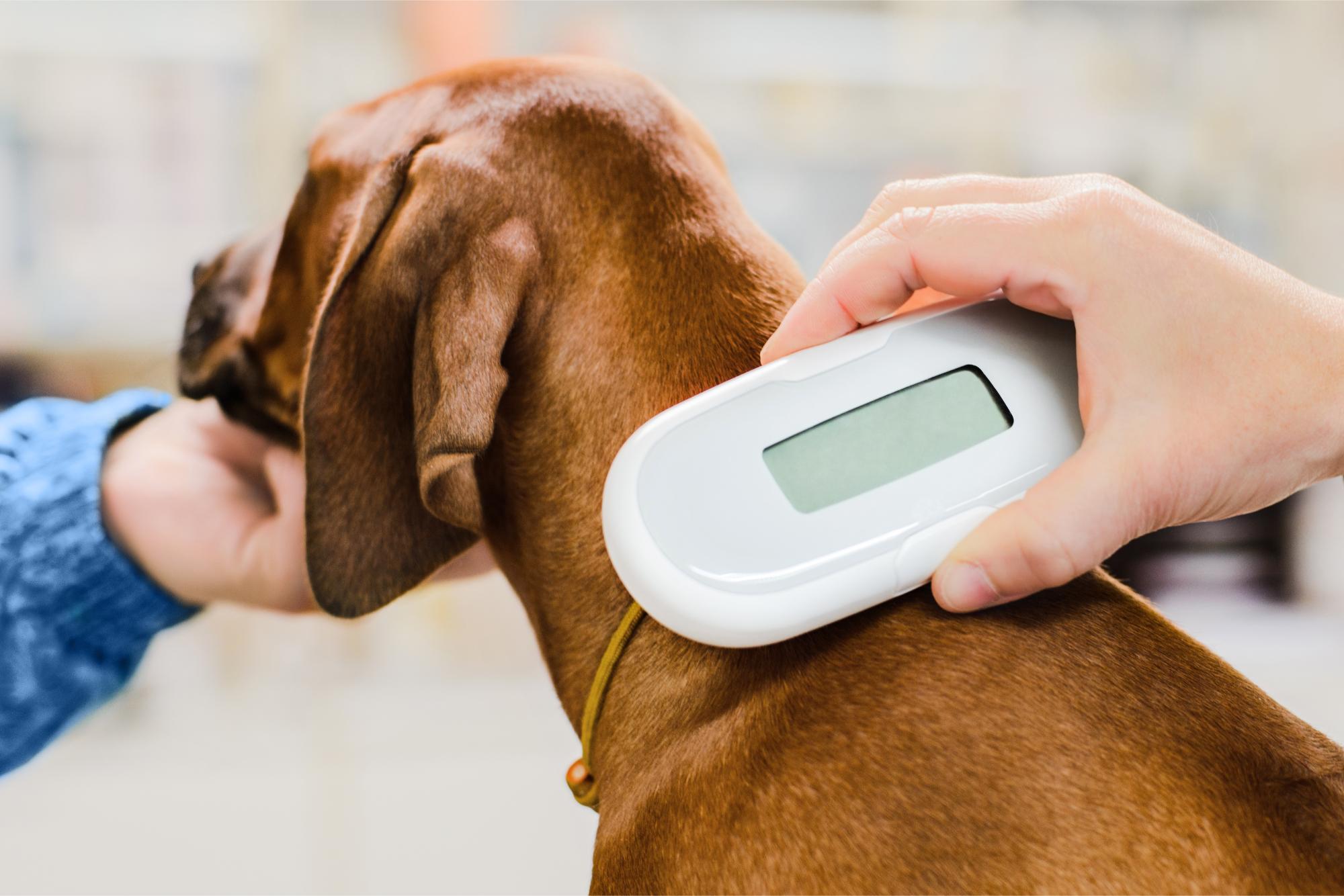Securing Your Furry Loved Ones: Chip Your Pets Month

There have been some incredible strides in animal medicine over the last century. Among advancements like digital X-rays, MRIs, and ultrasounds, is a tiny microchip encased in inert glass. Developed in the 1980s, pet microchips became the gold standard for responsible pet ownership. They are indispensable when a pet is lost or missing.
A Split Second
Whether a pet darts out of the front door, hops over the fence, digs under a gate, or takes off after a squirrel at the park, all it takes is a split second to become separated. This can be an absolutely terrifying experience because there are just no guarantees that a lost or missing pet will be reunited with their family. What’s worse, when they’re out on their own they can quickly become vulnerable to serious injury (vehicle collisions, falls, etc.) or illness (fights with other animals).
Begin at the Beginning
Before pets are adopted from shelters they are microchipped and owners are given the corresponding paperwork for registration. Other pets may receive their microchip at their first puppy or kitten wellness exam, or during their spay/neuter surgery. It is crucial to set up an account with the chip’s manufacturer in order to link the following information to the pet’s chip:
- Pet’s name
- Owner contact information
- Veterinarian contact information
This account (which is largely considered safe, and only provides details you choose) should be updated with any changes throughout the years, such as address or phone number. If the chip is not registered, the efficacy of the microchip is incomplete and uncertain.
The Nitty Gritty
Placed between the shoulder blades with a hypodermic needle, pet microchips are about the size of a grain of rice. Microchips cannot track location; rather, they contain a transponder that transmits a unique identification when activated by a handheld scanning device.
When a pet is taken to a shelter or veterinary hospital, they are immediately scanned. If they have a microchip, the scanner will show the identification number on the screen. This number is then entered into a database and if an owner’s contact information is listed, every effort will be made to reunite the pet with them.
Pet Safety
Studies show that microchipped pets are returned to their owners at more than double the rate for all strays. Pets that have microchips but are never claimed either have incomplete or inaccurate registration. These pets may be placed for adoption to new homes after a waiting period.
To ensure that your pet’s microchip is working as it should, our staff is happy to scan them. We’ll enter their chip number into the database to confirm the listed contact information.
Regardless of a pet’s age, lifestyle, behavior, and environment, they benefit from this quick, easy, affordable service. If you have questions about pet microchips, please call Sunrise Boulevard Animal Hospital at (916) 726-2334.
